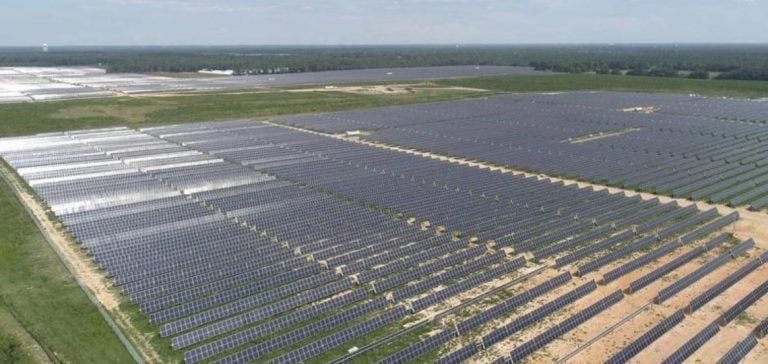DTE Energy, a major player in Michigan’s energy sector, recently commissioned three new solar farms as part of its MIGreenPower program.
This initiative, aimed at customers concerned about reducing their environmental impact, is helping to increase renewable energy production in the state.
The three sites – Fish Creek, Mission Road, and Little Trout – join other solar projects currently under development.
These new infrastructures will generate 800 megawatts of electricity, enough to power around 220,000 homes.
The MIGreenPower program offers individuals and companies the option of voluntary membership to finance green energy projects, accelerating the transition from fossil fuels to renewable energies. towards a cleaner energy mix.
Growing customer support for renewable energies
Consumer enthusiasm for renewable energies continues to grow, reinforced by programs such as MIGreenPower.
Nearly 100,000 residential customers and 1,900 businesses have signed up to this program, helping to finance DTE Energy’s new solar and wind developments.
Demand for these alternative options stems from companies’ desire to meet increasingly stringent sustainability targets, imposed by internal policies or environmental regulations.
Companies like DENSO, a major player in the automotive industry, have joined the program with the aim of achieving carbon neutrality by 2035.
This voluntary participation enables DENSO to offset part of its emissions while helping to accelerate solar and wind power projects in Michigan.
The economic implications of solar projects
In addition to increasing renewable energy production, DTE Energy’s solar projects generate significant economic benefits for the regions where they are located.
Since 2009, investment in renewable energies has created around 20,000 local jobs.
In addition to direct employment, local communities benefit from additional tax revenues generated by the presence of these infrastructures.
These funds are often used to finance public services, such as road infrastructure or emergency services.
The long-term economic impact of solar power plants is not limited to the construction phase alone.
Solar farms also generate regular income for communities, fostering a more resilient and sustainable economy.
For DTE Energy, these projects also strengthen its position in the renewable energy market, while adapting to the new legal requirements for decarbonization in the State of Michigan.
The role of the MIGreenPower program in the energy transition
One of DTE Energy’s main objectives is to meet its customers’ growing demand for cleaner energy sources.
The MIGreenPower program plays a key role in this strategy.
It allows funds to be channeled into renewable energy projects, while offering businesses and consumers a way to offset their CO2 emissions.
As a result, DTE plans to add a further 2,400 MW of wind and solar power over the next few years, to supply the needs of customers committed to this approach.
With increasingly stringent regulations and clear emissions targets, businesses and households are finding MIGreenPower a way to meet these requirements while investing in local infrastructure.
For DTE Energy, this represents a lever to maintain its leading position in the energy market while actively participating in the decarbonization of the electricity grid.
Outlook for the future
DTE Energy is pursuing its strategy of developing renewable energies through a series of ongoing projects.
In addition to the three solar farms recently commissioned, three others are under construction.
These initiatives are part of the company’s long-term trajectory to achieve carbon neutrality and meet new state renewable energy standards.
This rapid expansion of renewable generation capacity reflects growing consumer demand for cleaner, more cost-effective energy solutions.
DTE plans to continue developing new solar and wind projects, while strengthening membership of its MIGreenPower program, a cornerstone of its business model focused on energy transition.






















